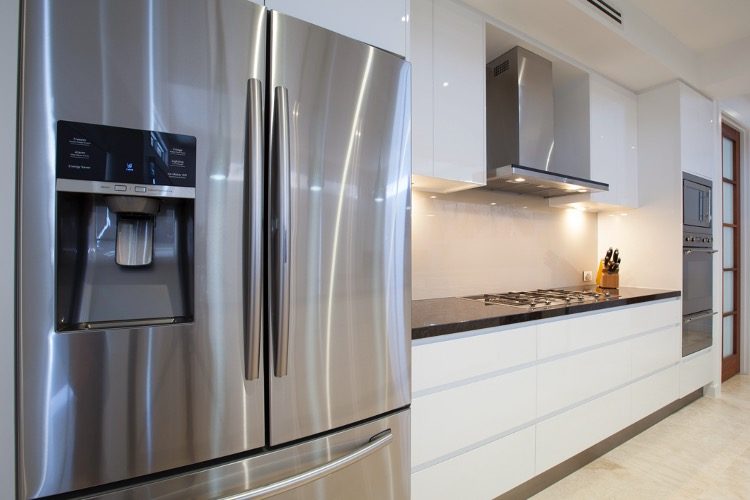
On Friday, just before the long holiday weekend, the Biden administration’s Department of Energy (DOE) announced no fewer than 30 proposed or final energy efficiency standards for appliances in the United States. The new efficiency standards were for residential refrigerators and freezers as well as commercial fans and blowers.
The DOE expects the new standards to be in place by January 31, 2029, or January 31, 2030, depending upon the configuration of the new appliances. The DOE expects the new standards to save consumers billions of dollars in energy costs over the next 30 years.
While the new standards are being peddled as a way to lower energy costs for working families, they’re also supposedly being used as a way to drastically reduce greenhouse-gas emissions, which climate alarmists claim are leading to out-of-control climate change.
“Today’s announcement is a testament to the Biden-Harris Administration’s commitment to lowering utility costs for working families, which is helping to simultaneously strengthen energy independence and combat the climate crisis,” said Jennifer Granholm, the U.S. Secretary of Energy. “DOE will continue to move quickly in 2024 — together with our industry partners and stakeholders — to update and strengthen outdated energy efficiency standards, which is critical to innovation, more consumer options, and healthier communities.”
The Biden administration bureaucracy has been looking to take away options on appliances for American consumers on such necessities as water heaters, portable generators, furnaces and, of course, gas stoves. The new regulatory proposals for refrigerators and freezers sound like an ESG investor’s dream.
“The efficiency standards being adopted today for residential refrigerators, refrigerator-freezers, and freezers, which have not been updated in over a decade, align with recommendations from a diverse set of stakeholders, including manufacturers, the manufacturing trade association, energy, environmental, and consumer advocacy groups, states, and utilities,” read a press release from the DOE.
“The energy savings over 30 years of shipments is 5.6 quadrillion British thermal units, which represents a savings of 11 percent relative to the energy use of products currently on the market. DOE estimates that the standards would save consumers $36.4 billion over 30 years of shipments and result in cumulative emission reductions of nearly 101 million metric tons of carbon dioxide — an amount roughly equivalent to the combined annual emissions of 12.7 million homes,” the DOE opined.
While the DOE and Secretary Granholm paint a rosy picture of the new regulatory landscape with billions of dollars in savings for consumers and much cleaner appliances with far less nasty climate-killing emissions, consumer groups are less enthusiastic.
“Refrigerator standards are much like dishwashers and clothes washers, where there’ve been so many standards over the decades that we’re either at the point of diminishing returns or negative returns,” Ben Lieberman of the Competitive Enterprise Institute, told Fox News.
“Consumers are perfectly capable of making these decisions on their own, including consumers who want to buy extra efficient refrigerators or other models,” Lieberman said. “What these standards do is they force that choice on everyone, whether it makes sense for them or not. And we know from history that, in some cases, these standards raise the upfront cost more than you’re likely to earn back in the form of energy savings.”
While the Biden bureaucracy is intent on driving emissions down to supposedly benefit the climate, consumer advocates claim that the stringent new standards are making costs of appliances far higher as manufacturers must implement new technologies — some of which haven’t been invented yet — in order to meet the new government demands.
Earlier this year, in addressing new regulations on gas stoves, a coalition of consumer groups argued that the Energy Policy and Conservation Act (EPCA) only allows such government intervention if consumer choices are unaffected.
“EPCA does not mandate a new energy conservation standard for cooking products, but permits one only if it benefits consumers. This is not the case here,” the consumer coalition wrote. “The proposed rule would almost certainly compromise some of the features that gas stove users want, and all for the sake of saving an insignificant amount of energy.”
The DOE spent much of 2023 issuing proclamations about home appliances. In February it issued new regulations for washers, in March it went after dishwashers, in May it was water heaters, and in September furnaces were targeted.
“They are trying to reshape the place that you live to make it look the home they would like you to live in,” O.H. Skinner of the Alliance for Consumers told Fox News in October. “They’re really trying to impose what are progressive preferences from places found in coastal enclaves and make it so everyone has to live like that.
“What’s crucial is to understand this administration isn’t just tweaking regulations. They’re doing things that effectively ban whole categories of things that exist on the market,” Skinner said. “Almost all of these decisions, as you work through it, are influenced by the overall climate agenda and the green agenda and the desire for us to change our lives.”
And in the case of these newest regulations, they were hidden in an end-of-the-year announcement prior to a long holiday weekend, so that fewer consumers would notice that their choices are being limited by the government for the sake of a non-existent problem.




